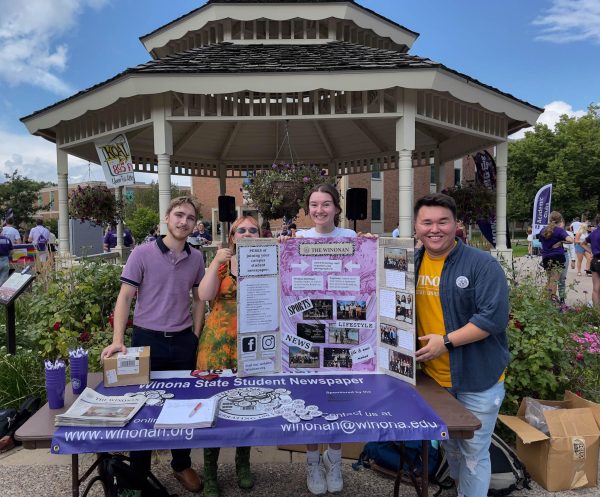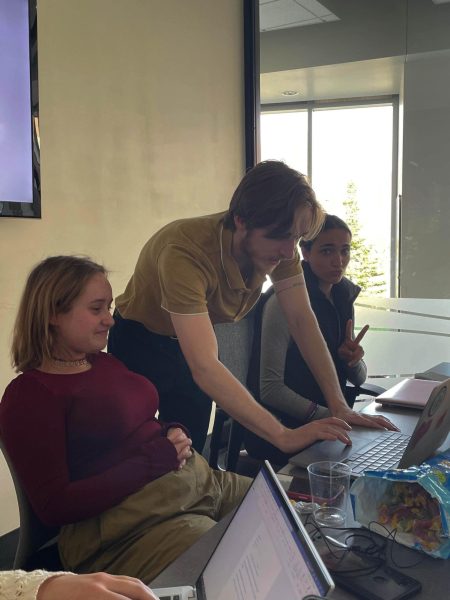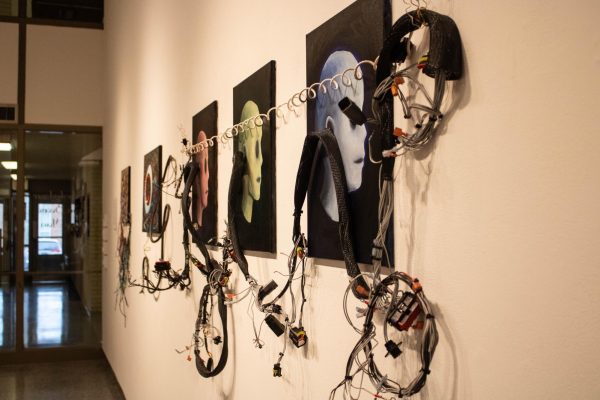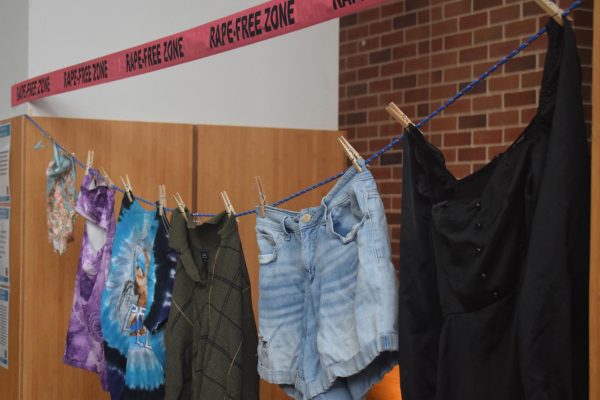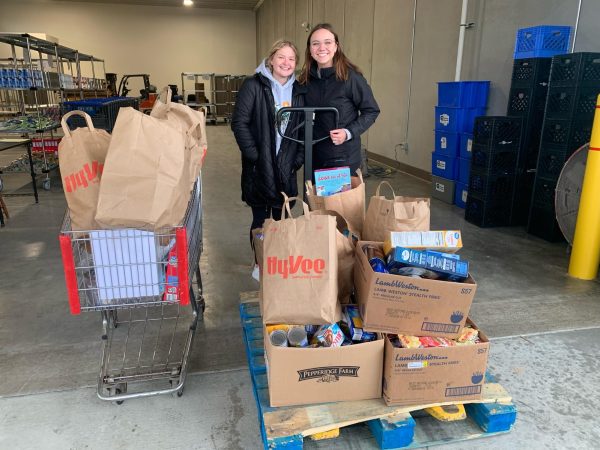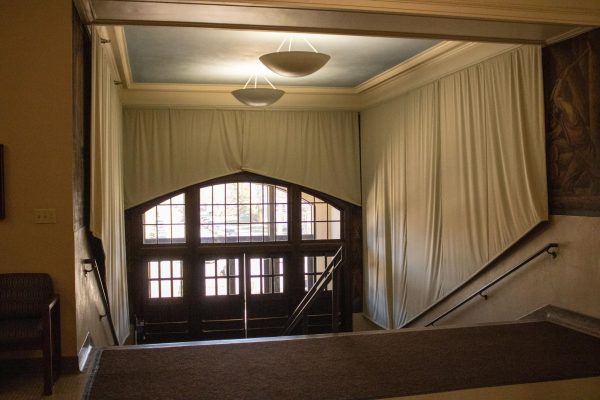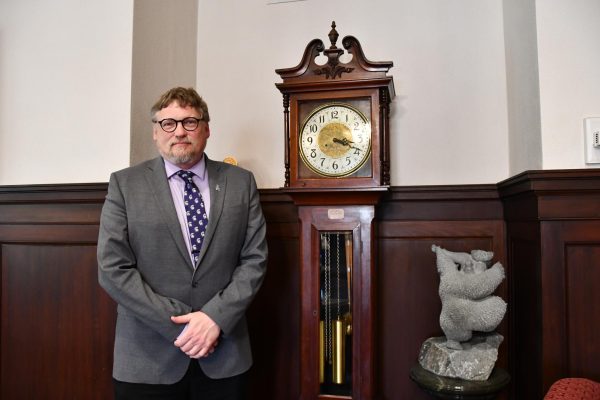“Racism as Reproductive Injustice” Talk Held on Campus
November 10, 2021
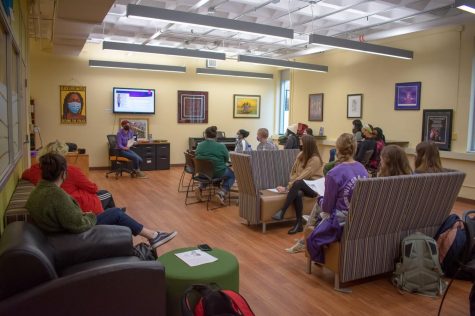
Dr. Mary Jo Klinker, director and professor of the Women’s, Gender and Sexuality Studies department, led a talk called “Racism as Reproductive Injustice” this past Wednesday, Oct. 4.
Klinker said they wrote this specific lecture based on the intersections of power and privilege with the reproductive justice framework as a means to abolish white supremacy and its intersecting issues and systems.
More than a dozen students attended the speaker event held in the KEAP Center on Winona State University’s campus.
Student Senators were present at the lecture as well as those with a variety of areas of study at the school, including social work, nursing, education and more.
Klinker began their lecture by asking the students what topics came to mind when they hear the words ‘pro-life’ and ‘pro-choice.’ Students mentioned abortion, conservative and liberal political views, freedom, religion and more. “I’m actually not even talking about pro-choice or pro-life at all today,” Klinker said. “Reproductive justice as a framework was cultivated in the 1990’s as a response to a number of structural issues that were occurring in feminist’s lives.”
The lecture involved the separate definitions of reproductive rights and reproductive justice, the 1973 Roe vs. Wade Supreme Court case and the history of reproductive justice regarding its ties to racism and feminism, as well as various other social justice issues.
Klinker highlighted the 1976 Hyde Amendment, which determined that no one could use social welfare in order to access abortion, with very few exceptions.
“This effectively made it so that we were past Roe already, but a lot of people don’t talk about it,” Klinker explained. “Disproportionately, that means that every low-income person who becomes pregnant after that couldn’t access abortion.”
She also tied in the activism and scholarly work of several individuals, including Loretta Ross who is recognized as an educator, activist and pioneer of the reproductive justice movement. Ross was also a keynote speaker during last year’s celebration of Women’s History Month at Winona State.
“[Ross] said reproductive justice is about three things: it’s not just about abortion. It’s about the right to have kids and the right to not have kids… and most importantly for me, in the work that I do, is the right to raise your kids in a safe and healthy environment,” Klinker said.
They prefaced the rest of their lecture by saying much of the presentation would be about the political history behind, “who’s been told they can’t have kids and how.”
Klinker has taught at Winona State for eight years, their areas of research expertise including feminist and queer response to state-sanctioned violence and the impacts of imperialism. They are also the advisor for the Students for Reproductive Justice club at Winona State and are active as a community activist and organizer on and off campus.
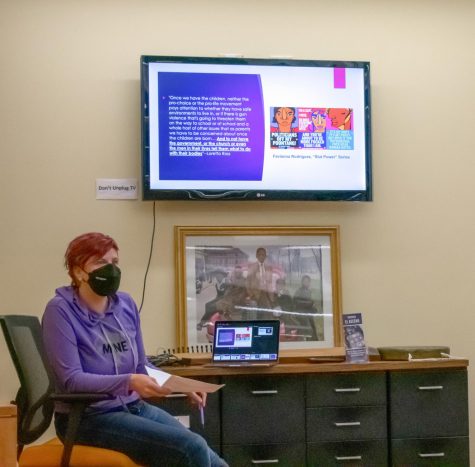
Coincidentally, Klinker was hired due to the activism of students at the university.
“I really love being in KEAP Center and one thing I don’t get to share a lot with students is that I was hired by students who helped to create the KEAP Center,” Klinker said.
Klinker was hired eight years ago, shortly after student activism led to the creation of the KEAP Center. The KEAP acronym stands for Knowledge, Empowerment, Advocacy and Pluralism; it was created to be a physical space on campus for students–specifically marginalized students to feel welcomed and accepted in their identities.
Prior to the 2013-14 school year, Winona State was the only university in the Minnesota State Colleges and Universities system to not have a diversity resource center.
That school year was also the year the Higher Learning Commission (HLC) was returning to review Winona State and decide whether to reaccredit the university.
With a specific goal in mind to demand Winona State give the student body a physical safe space on campus, students formed the No Space Coalition to advocate for themselves. The coalition protested during the time the HLC was visiting campus and they were impossible to ignore.
Now, eight years later, the HLC will be returning to Winona State’s campus on Monday, Nov. 8 and staying until the following day to meet with President Olson and administration members for reaccreditation purposes.
Recent events on Winona State’s campus have led many students, faculty and staff to request administrations’ acknowledgement of current issues occurring within the student body, much like the issues No Space Coalition focused on nearly a decade ago and Klinker’s lecture topic.
Anasia Phillips, a longtime Student Senator at Winona State, attended the lecture and told students to reach out to her if they have concerns or questions regarding diversity.
“I am the [Equity and Inclusive Excellence] Chair for Student Senate, so if you have any suggestions or recommendations about how to make Winona State more equitable and inclusive, please let me know and I’ll do anything I can to help you,” Phillips said.




























































